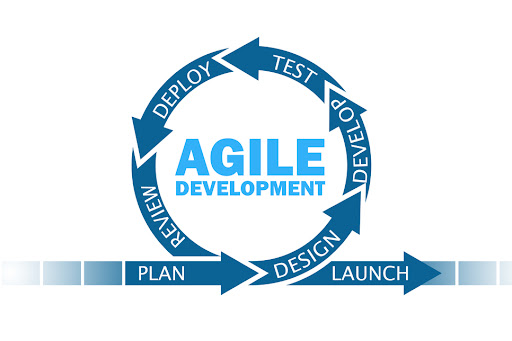Agile development is a software development methodology that emphasizes flexibility, collaboration, and continuous improvement throughout the development lifecycle. This article explores the principles, practices, benefits, challenges, and future trends of Agile development, highlighting its transformative impact on software engineering practices.
Principles of Agile Development
Agile development is guided by the following core principles:
- Customer Collaboration over Contract Negotiation: Prioritizing active engagement and collaboration with stakeholders to deliver solutions that meet evolving requirements.
- Responding to Change over Following a Plan: Embracing change and adapting quickly to new insights, feedback, and market dynamics throughout the development process.
- Individuals and Interactions over Processes and Tools: Valuing communication, teamwork, and collaboration among cross-functional teams to achieve project goals.
- Working Software over Comprehensive Documentation: Focusing on delivering functional software that adds value to users over extensive documentation.
Key Practices in Agile Development
- Iterative Development: Breaking down projects into smaller, manageable iterations or sprints to deliver incremental improvements and gather feedback.
- Daily Stand-ups: Regular meetings to discuss progress, identify obstacles, and align team members towards achieving sprint goals.
- Continuous Integration and Testing: Integrating code changes frequently and running automated tests to ensure software quality and early detection of issues.
- Collaborative Planning and Retrospectives: Involving stakeholders in sprint planning, reviewing progress in retrospectives, and adjusting strategies for continuous improvement.
Benefits of Agile Development
- Enhanced Flexibility and Adaptability: Agile methodologies enable teams to respond quickly to changing requirements and market conditions, reducing time-to-market for software products.
- Improved Collaboration and Communication: Cross-functional teams collaborate closely, fostering a shared understanding of project goals and promoting transparency.
- Higher Product Quality: Continuous testing and feedback loops throughout development cycles lead to early bug detection, better software quality, and increased customer satisfaction.
- Customer Satisfaction: Agile development prioritizes delivering valuable software features early and frequently, aligning with customer needs and expectations.
Challenges in Agile Development
- Organizational Resistance: Adopting Agile may require cultural and organizational changes, challenging traditional hierarchical structures and processes.
- Managing Scope and Expectations: Balancing flexibility with managing scope creep and stakeholder expectations, especially in complex projects.
- Skill Requirements: Requiring skilled Agile practitioners who understand the methodologies and can effectively implement Agile practices within teams.
- Scaling Agile: Scaling Agile practices across large teams or organizations while maintaining consistency, collaboration, and alignment of goals.
Future Trends in Agile Development
- Agile Beyond Software Development: Extending Agile principles and practices to other domains such as marketing, HR, and operations to enhance agility and responsiveness.
- DevOps Integration: Integrating Agile development with DevOps practices for continuous delivery, automation, and infrastructure as code.
- AI and Automation: Leveraging AI-driven insights and automation to enhance Agile processes, optimize resource allocation, and improve decision-making.
- Remote and Distributed Agile Teams: Adapting Agile methodologies to support remote work environments and global team collaboration through virtual tools and platforms.
Conclusion
Agile development has revolutionized software engineering by prioritizing collaboration, flexibility, and continuous improvement. As organizations embrace Agile methodologies to enhance productivity, innovation, and customer satisfaction, addressing challenges and evolving trends will be crucial for maximizing the benefits of Agile development in an increasingly dynamic and competitive market. By fostering a culture of adaptability, teamwork, and customer-centricity, Agile methodologies empower teams to deliver high-quality software solutions that meet evolving user needs and drive business success.



